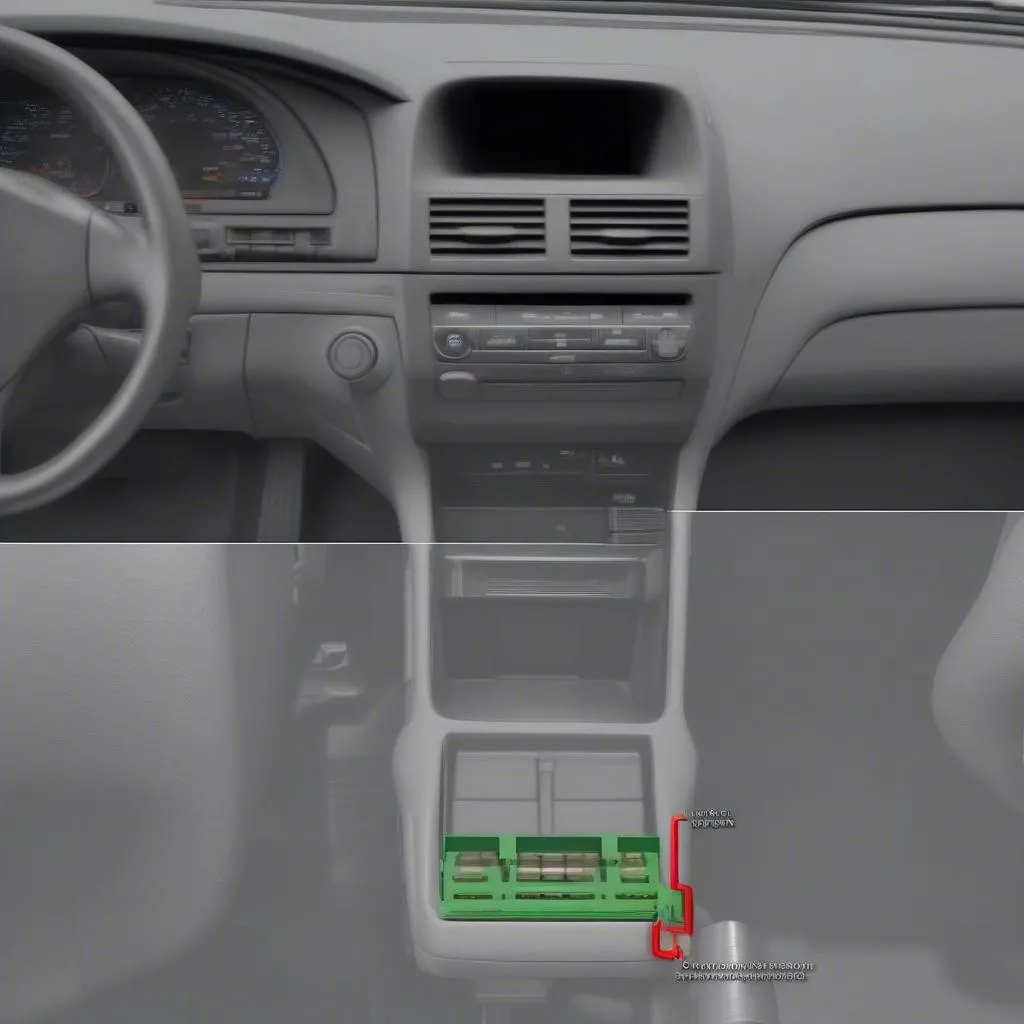Have you ever wondered if your 2001 Honda Accord has OBD II? It’s a common question, especially for car owners who are trying to diagnose issues or find a skilled mechanic for repairs. Let’s dive into the specifics and find the answer!
What is OBD II?
OBD II stands for On-Board Diagnostics II, a standardized diagnostic system that was first implemented in 1996 for vehicles sold in the United States. Think of OBD II as a language that your car speaks to mechanics and diagnostic tools. It’s a crucial part of the vehicle’s electrical system that helps you understand what’s going on under the hood.
Why is OBD II Important?
Imagine you’re driving your Honda Accord and suddenly the check engine light illuminates. You’re probably wondering, what’s wrong? OBD II comes to the rescue! It allows mechanics to connect a scan tool, like a Dealer Scanner, to your car’s computer. The scan tool can read the Diagnostic Trouble Codes (DTCs) stored in the vehicle’s memory, which provide valuable clues about the source of the problem.
Does My 2001 Honda Accord Have OBD II?
The good news is that your 2001 Honda Accord does indeed have OBD II!
Here’s why:
-
Federal regulations: The United States Environmental Protection Agency (EPA) mandated OBD II for all cars sold in the U.S. from 1996 onwards.
-
Year of manufacture: Your 2001 Honda Accord falls within this time frame.
-
OBD II connector: You should find a 16-pin OBD II connector under your dashboard, usually on the driver’s side.
How to Find the OBD II Connector
 2001 Honda Accord OBD II connector location
2001 Honda Accord OBD II connector location
What Can You Do with OBD II?
Once you’ve found the connector, you can use it for various purposes, including:
- Diagnose engine issues: Get valuable insights into any problems your engine may be experiencing.
- Clear fault codes: After a repair, you can use OBD II to clear the stored DTCs.
- Check readiness monitors: Ensure your car is ready for emission tests.
Tips for Using OBD II
-
Use a compatible scanner: Not all scanners are created equal. Choose a scanner that’s compatible with your Honda Accord’s specific year, make, and model.
-
Understand the codes: DTCs can be cryptic. Use a repair manual or an online resource to decode them and understand their meaning.
-
Don’t rely solely on OBD II: While OBD II is a great tool, it’s not always the answer. Sometimes, you may need the expertise of a qualified mechanic for more complex issues.
FAQs
Q: Can I use a generic OBD II scanner on my 2001 Honda Accord?
A: While generic scanners can read basic information, you might need a dealer-specific scanner for more comprehensive diagnostics.
Q: What if the OBD II connector is missing or damaged?
A: You’ll need to have the connector replaced or repaired by a qualified mechanic.
Q: Are there any other resources for learning more about OBD II?
A: Yes! You can find helpful resources online, including the Tech Car USA OBD II Guide which includes information on scanners, codes, and troubleshooting.
Q: Does my 2001 Honda Accord need any specific maintenance?
A: Like any car, regular maintenance is essential for keeping your Accord running smoothly. Check out Tech Car USA’s AllData OBD Readiness Guide for specific maintenance recommendations and best practices.
Conclusion
OBD II is a powerful tool that can help you understand your 2001 Honda Accord better. Knowing that your Accord has OBD II allows you to take control of your car’s maintenance and repairs.
Don’t hesitate to reach out if you have any questions about your car’s electrical system. We’re here to help!
Contact us on Whatsapp at +84767531508 for expert advice and assistance with OBD II diagnostics and repair.
Leave a comment below if you have any other questions or share your own experiences with OBD II in your Honda Accord!